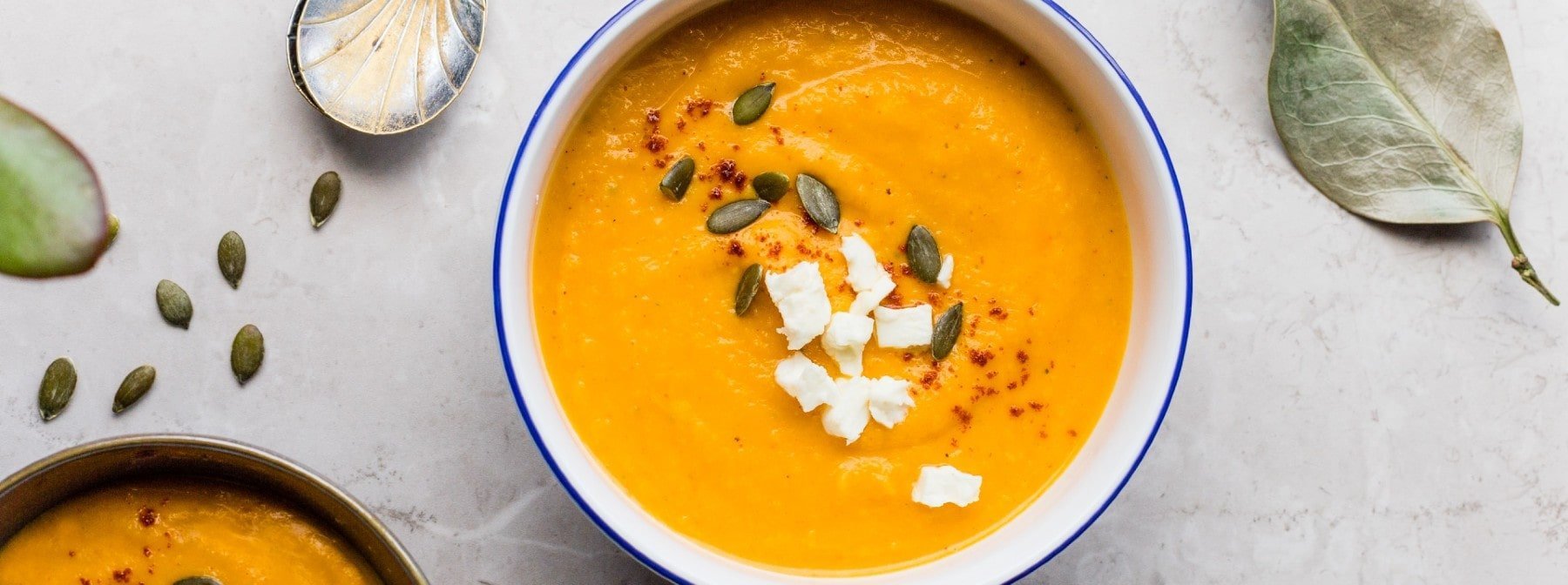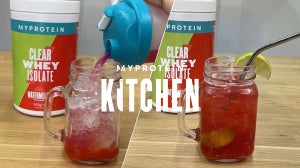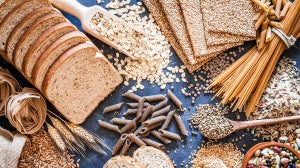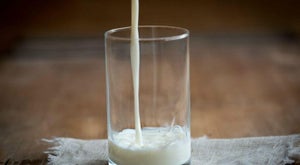
A soup diet is where most of your meals consist of soup. Not just for those who love soup, the soup diet can be a way to tightly control calories and lead to accelerated short term weight loss. This article will explore the different types of soup diets, outline the pros and cons and help you decide if a soup diet will be healthy for you.

What is a soup diet?
A soup diet is a short-term diet used for quick weight loss. Typically lasting for 5-7 days, soups diets are not designed for a long term, sustainable method of healthy weight loss and there is not much scientific evidence to show they are effective.
Whilst some have reported large amounts of weight loss following soup diets, this is most likely to be water weight, which will return when you start eating properly again.Cabbage Soup Diet
The cabbage soup diet is one of the most popular soup diets. It lasts for 7 days and the meal plan consists of vegetable soup made up of cabbage and other vegetables that are low in carbohydrates. Alongside the soup you can also include other low-calorie foods such as skimmed milk and leafy greens.
The cabbage diet has been described by The Mayo Clinic, one of the world’s leading hospitals, as a fad diet which shouldn’t be followed for long. It’s a low-calorie diet lacking in a range of nutrients that will mean your energy levels will drop. It's super low-carb nature will also likely make you feel very tired, and lack of protein may leave you feeling not very satiated.
It may also cause increased flatulence and after 7 days of eating cabbage its likely you will probably never want to see a cabbage again.
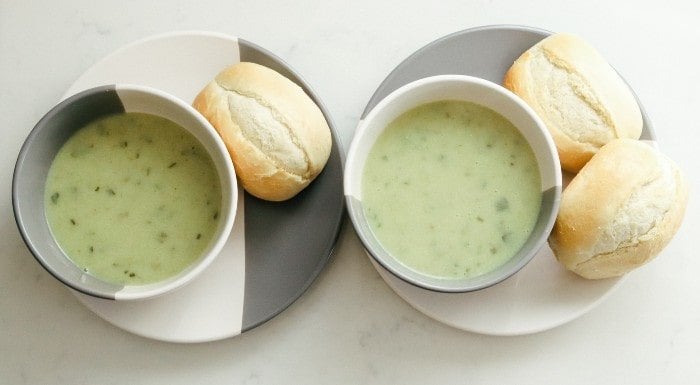
Bean Soup Diet
The bean soup diet consists of mushrooms, peppers, tomatoes and pinto beans. It was devised by Michael Gregor, author of a popular health book. It recommends you eat bean soup twice a day and eliminate all oils with fats coming from nuts and avocados. The remainder of your food intake should be plant-based foods.
Whilst the diet will encourage you to eat plant-based foods, which provide a range of health benefits, there is no science to back the reported health claims. You also likely won’t feel satiated on a diet of soup, which isn’t good for mental health as well as physical.
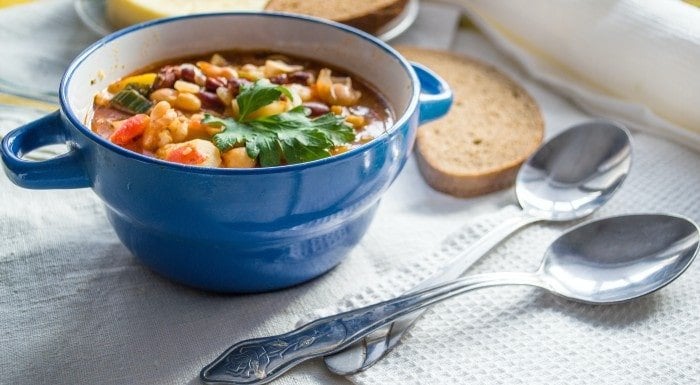
Chicken Soup Diet
The chicken soup diet involves eating chicken soup for every meal except breakfast and lasts for 7 days. For breakfast you have the choice of five low calorie options – non-fat milk and yoghurt, fat free cheese, whole-grain cereal or bread and fresh fruit.
During the day the diet consists of frequent, small servings of chicken soup. Its claimed that this will help you feel full. As chicken contains protein, which has a high effect on satiety there is evidence that this may work. However, the soup is low in calories and this won’t help with energy levels.
The soup also contains a mix of vegetables such as carrots, turnips, broccoli and collard greens which will provide a range of micronutrients.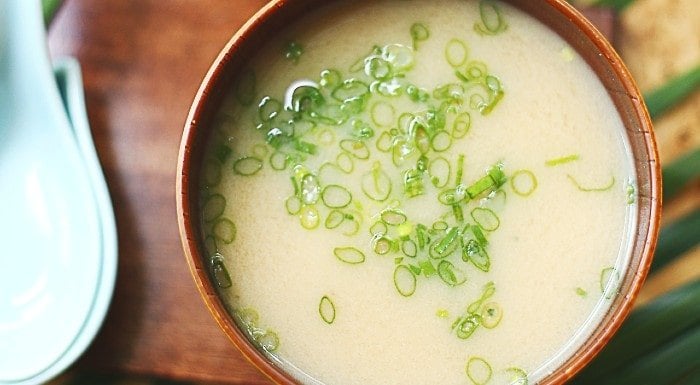
Keto Soup Diet
The keto soup diet is low in carbs and high in fat and with the aim of inducing ketosis in your body - the process in which your body uses ketones as a fuel source in the absence of carbohydrates. Proponents of the keto diet claim it will increase fat loss whilst maintaining muscle.
The keto soup diet provides 1,200–1,400 calories per day whilst limiting daily carbs to 20 grams. Other restricted foods include nuts, dairy, and artificial sweeteners.
The plan consists of four bowls of keto soup, a high fat breakfast of eggs, butter, bacon and avocado, along with a low carb snack. The soup recipe includes ingredients such as chicken, bacon, olive oil, mushrooms and other low carb vegetables.
What are the potential benefits?
Following a soup diet for a few days may provide some potential benefits such as increasing vegetable intake and therefore upping your macronutrients. The soup diet may also kickstart or speed up your weight loss progress.
Soup diets can boost your vegetable intake
Vegetables contain a range of micronutrients, which are important in keeping us healthy. However, for most soup diets, and especially in the case of the cabbage diet, you’re missing out on a wide range of essential micronutrients.
It has been recommended that you supplement a multivitamin whilst following soup diets.
They may help you to feel fuller
Some of the soup diets may increase your fibre intake due to their vegetable content.
Fibre can slow down digestion and help you feel fuller for longer, although those higher in protein content as well as fibre will be better at this.
Despite this, soup diets are very low in calories – which is why you lose weight following them. For some soup diets it will be hard for you to consume the minimum level of advised calories for women (1200 a day).
Expect your energy levels to dramatically drop following a diet with less than 1200kcals a day.
Soup Diets are good for losing weight (in the short term)
Soup diets are not a long-term way of eating but they will help you lose weight quickly. This may help if you’re looking for something to follow to kickstart your weight loss journey.
Evidence shows that initial weight loss can provide encouragement and motivation to stick to weight loss diet in the long term.1 So, following a short-term plan like a soup diet may be a good place to start, as long as you begin to eat more balanced meals once the diet is over.

Are there any potential drawbacks?
Whilst soup diets may lead to short term weight loss, in most cases the drawbacks out-weigh the advantages.
Soup diets can be high in salt
In order to provide some flavour, soups often contain a lot of salt.
The daily recommended intake salt is 6g, which is roughly a tea spoon. For reference, some tinned soup will contain 2-3g of salt in a serving. This means that one of your soups could be half of your daily salt intake, making it much easier to consume more than recommended.
They will be low in protein
A sufficient protein intake is required to maintain lean muscle mass, which has a range of key health roles including injury prevention, strength and metabolic control. The RDA (recommended dietary allowance to meet basic nutritional requirements) of protein is 0.8g/kg, which will be hard to hit following some soup diets.
So, although some soup diets are higher in protein than others, they’re not be the best choice if you’re trying to up your protein intake and build muscle.
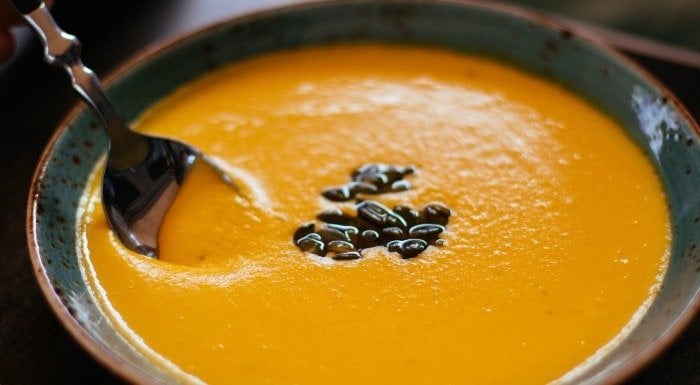
How to keep your soup diet healthy
If you love soup and feel that a soup diet can provide a good, short term boost of motivation in your weight loss pursuit, there are ways in which you can make them healthier.
Keep it short
Following a low-calorie diet lacking in a wide range of nutrients on a long-term basis will lead to a range of health issues. To prevent nutrient deficiencies do not follow for more than 7 days.
Include protein in your soup
To preserve lean muscle, which is important for strength and metabolism, include soup which contains protein such as the chicken soup diet. The RDA for protein is 0.8g/kg and a typical chicken breast will provide 40g of protein.There are also soups and broths made with tofu for any vegan or vegetarians.
Take Home Message
Soup diets are not a long term, sustainable solution to lose weight. Most of the weight lost following such diets is mostly water weight which will return when you start eating properly again. For long term weight loss, it is best to follow a sustainable diet plan and lose weight at a steady rate.
However, a short-term soup diet may provide a boost to your weight loss plans and give you the motivation to stick to a long-term healthy eating plan.Our articles should be used for informational and educational purposes only and are not intended to be taken as medical advice. If you're concerned, consult a health professional before taking dietary supplements or introducing any major changes to your diet.
- Nackers, L., Ross, K. and Perri, M. (2010). The Association Between Rate of Initial Weight Loss and Long-Term Success in Obesity Treatment: Does Slow and Steady Win the Race?. International Journal of Behavioral Medicine, 17(3), pp.161-167.

